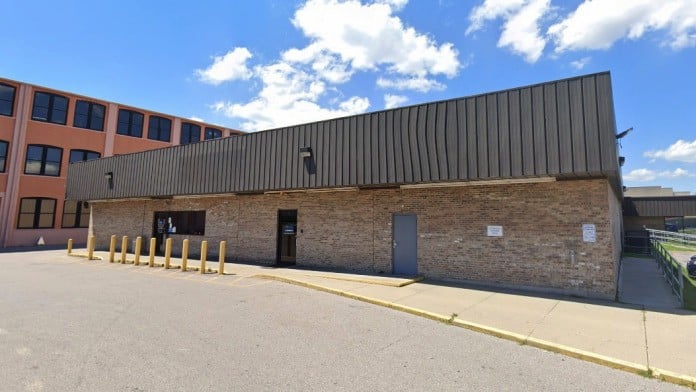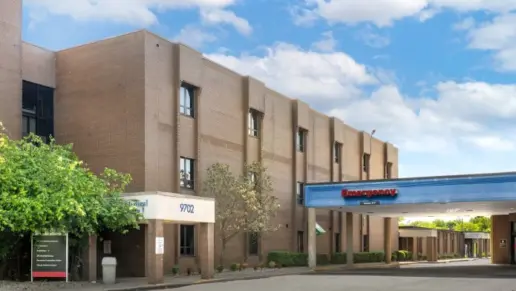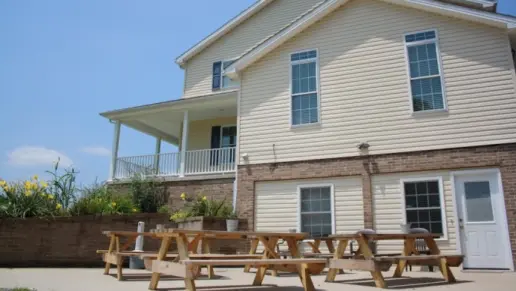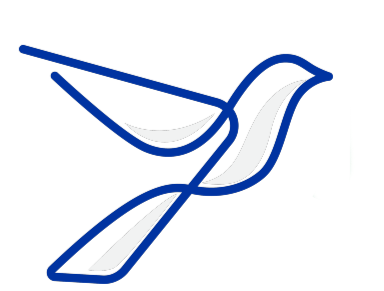I feel like they're not really willing to understand you and try to accommodate your individual needs. I called to tell them I couldn't make my appointment due to a personal issue and they were not understanding at all and were not willing to reschedule my appointment.
About NKY Med Clinic
NKY Med Clinic is part of Pinnacle Treatment Centers and this is one of their outpatient clinic locations. The clinic is on Madison Avenue in Covington, Kentucky and is CARF-accredited. They offer comprehensive support for opioid use and co-occurring disorders. Medication-assisted treatment (MAT) and therapy are the core treatment services.
They accept several commercial insurance plans including Aetna, Anthem, Cigna, United Health Care/Optum and Humana. They also take Medicare and VA Community Care. They take other insurance too, so if you don’t see yours on the list then you can contact them and ask whether they accept yours.
In the program, you’ll start with a medical and clinical assessment to evaluate your mental and physical health. They’ll develop a customized treatment plan based on your health and history of substance use. If appropriate then you’ll be started on MAT. The MAT drugs offered here are Vivitrol, Suboxone and methadone.
Treatments include individual counseling where you’ll meet one-on-one with a counselor to determine what therapies will be best for you. If you have a co-occurring disorder then your counselor will decide the best course of treatment to improve your quality of life and successfully address your substance use.
Group counseling is another part of the program. In group counseling, you’ll meet with other patients facing similar struggles. You’ll give and get feedback and support. There is also a peer support group where you’ll meet with and get guidance and support from others who have recovered from their addiction to opioids.
Motivational interviewing (MI) is another type of therapy you may participate in. It’s a short-term therapy that helps you identify and examine many of the conflicting feelings and thoughts you may have. Through MI, you’ll learn to resolve those feelings through an empathetic and practical process. With the therapies and MAT treatment together, you can work toward a healthier, happier lifestyle.
Rehab Score
Gallery

Location
Accepted Insurance
Other Forms of Payment
Private insurance refers to any kind of healthcare coverage that isn't from the state or federal government. This includes individual and family plans offered by an employer or purchased from the Insurance Marketplace. Every plan will have different requirements and out of pocket costs so be sure to get the full details before you start treatment.
Self-pay involves paying for treatment out of your own pocket. You can use savings or credit, get a personal loan, or receive help from family and friends to fund your treatment. If you don't have insurance or your insurance plan doesn't cover a specific program, self-pay can help ensure you still get the care you need.
Medicaid is a state based program that helps lower-income individuals and families pay for healthcare. Medicaid covers addiction treatment so those enrolled can use their coverage to pay for rehab. When a program accepts Medicaid the client often pays very little or nothing out of their own pocket.
Medicare is a federal program that provides health insurance for those 65 and older. It also serves people under 65 with chronic and disabling health challenges. To use Medicare for addiction treatment you need to find a program that accepts Medicare and is in network with your plan. Out of pocket costs and preauthorization requirements vary, so always check with your provider.
Addiction Treatments
Levels of Care
Treatments
The goal of treatment for alcoholism is abstinence. Those with poor social support, poor motivation, or psychiatric disorders tend to relapse within a few years of treatment. For these people, success is measured by longer periods of abstinence, reduced use of alcohol, better health, and improved social functioning. Recovery and Maintenance are usually based on 12 step programs and AA meetings.
Drug rehab in Kentucky often starts with detox, then includes inpatient or outpatient treatment, and continues with aftercare support. Specific methods used during each of these phases varies, but often include individual and group counseling, medication, and recreational therapies.
Opioid rehabs specialize in supporting those recovering from opioid addiction. They treat those suffering from addiction to illegal opioids like heroin, as well as prescription drugs like oxycodone. These centers typically combine both physical as well as mental and emotional support to help stop addiction. Physical support often includes medical detox and subsequent medical support (including medication), and mental support includes in-depth therapy to address the underlying causes of addiction.
Substance rehabs focus on helping individuals recover from substance abuse, including alcohol and drug addiction (both illegal and prescription drugs). They often include the opportunity to engage in both individual as well as group therapy.
Programs



Clinical Services
Group therapy is any therapeutic work that happens in a group (not one-on-one). There are a number of different group therapy modalities, including support groups, experiential therapy, psycho-education, and more. Group therapy involves treatment as well as processing interaction between group members.
Trauma therapy addresses traumatic incidents from a client's past that are likely affecting their present-day experience. Trauma is often one of the primary triggers and potential causes of addiction, and can stem from child sexual abuse, domestic violence, having a parent with a mental illness, losing one or both parents at a young age, teenage or adult sexual assault, or any number of other factors. The purpose of trauma therapy is to allow a patient to process trauma and move through and past it, with the help of trained and compassionate mental health professionals.
Accreditations

The Substance Abuse and Mental Health Services Administration (SAMHSA) is a branch of the U.S. Department of Health and Human Services. Established in 1992 by congress, SAMHSA's mission is to reduce the impact of substance abuse and mental illness on American's communities.
SAMHSA Listed: Yes
Contact Information
1717 Madison Avenue
Covington, KY 41011









